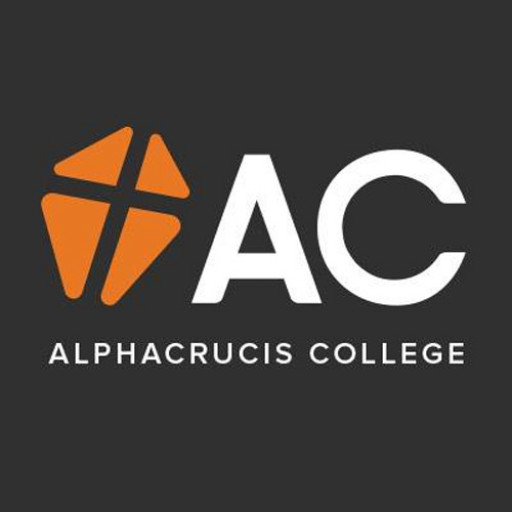Photos of university / #cambridgeuniversity
The University of Cambridge's Theology and Religious Studies undergraduate program offers students the opportunity to explore the diverse and complex world of religious beliefs, practices, and traditions across different cultures and historical periods. This course provides a comprehensive understanding of major world religions such as Christianity, Islam, Judaism, Hinduism, Buddhism, and others, delving into their theological doctrines, sacred texts, rituals, ethical systems, and cultural contexts. Through rigorous academic investigation, students develop critical thinking skills, engage with philosophical debates, and analyze the historical development of religious ideas and institutions. The program encourages intellectual curiosity and promotes open-minded discussion about the role of religion in contemporary society, politics, and global issues.
Students have access to a wide range of modules covering biblical studies, Islamic studies, philosophy of religion, ethics, religious history, and contemporary religious movements. The coursework involves a combination of lectures, seminars, independent research, and critical essays, fostering skills in textual analysis and argumentation. The university’s world-class libraries and resources support deep academic inquiry, enabling students to access a vast array of primary and secondary sources. The program also emphasizes interdisciplinary approaches, integrating insights from history, anthropology, philosophy, and sociology to deepen understanding of religious phenomena.
Students are encouraged to participate in diverse extracurricular activities such as religious services, debates, and conferences, which enhance their practical and cultural understanding of faith communities. The collaborative learning environment and the university’s rich academic tradition provide an inspiring setting for intellectual growth. Graduates of this program are prepared for careers in academia, education, journalism, public policy, intercultural relations, and religious organizations, equipped with a nuanced understanding of religion’s influence on individuals and societies. Overall, this comprehensive program aims to produce well-informed, thoughtful, and socially conscious individuals who can critically engage with religious ideas and their impact on the modern world.
Supervisions are given on the dissertation.
| One to one supervision |
Twelve hours per year full-time (reduced pro rata for part-time). |
|---|
Feedback
Feedback will be given by the supervisor in the course of supervisions and in termly CGSRS reports. In addition, there will be a report from the assessors following the first-year examination.
Assessment
Thesis
Dissertation of not more than 80,000 words with a compulsory viva.
Other
A first-year examination for which students must submit the following:
- a summary of the scope, purpose, methodology and value of research project;
- a provisional outline of your dissertation with a timetable for the conduct and completion of the research and writing;
- a bibliography of topic and its immediate intellectual context set out in accordance with the conventions current in field of study
- a sample of written-up research of no more than 10,000 words, with appropriate footnotes and bibliographical references (included in word-count).
Students will have a meeting with two assessors to discuss the submitted work.
- Magistr (Master's Degree) at Pass level. Diploma Specialista (completed post-1991) with a minimum overall grade of good or 4/5 Bachelor's from Moscow Institute of Physics and Technology and other prestigious institutions with an overall grade of 4/5 Bologna Bachelor's from other institutions with an overall grade of 5/5, Excellent
- Diploma Specialista (completed post-1991) with a minimum overall grade of Excellent or 5/5 Bachelor's from Moscow Institute of Physics and Technology and other prestigious institutions with an overall grade of 5/5
- IELTS (Academic) 7.5
- TOEFL Internet Score 110
- £50 application fee
- First Academic Reference
- Second Academic Reference
- Transcript
- Sample of Work. Either one or two essays, or a thesis (whole or part).
- Research Proposal. Around 1,000 words.
- Personal Reference
- Global Education
- Gates Cambridge Scholarships
- Burney & Gregg Bury Studentship (Philosophy of Religion & Christian Theology)
- Crosse Studentship (Biblical Studies, Ecclesiastical History & Christian Thought)
- Kirby Laing Studentship (New Testament)
- Peregrine Maitland Studentship (Spread of Christian Religion, comparison between Christianity & other religions, the contact of Christian and other civilizations)
- Polonsky-Coexist Studentship in Jewish Studies
- Shapiro Fund (Jewish Studies)
- Theological Studies Fund Studentship
The Theology and Religious Studies program at the University of Cambridge offers a comprehensive exploration of religious beliefs, practices, and historical development across various cultures and traditions. This interdisciplinary course encompasses historical, philosophical, textual, and social scientific approaches to understanding religion. Students engage with a wide range of texts, from ancient scriptures to contemporary writings, gaining critical skills in analysis, interpretation, and debate. The program provides an in-depth study of major world religions such as Christianity, Islam, Buddhism, Hinduism, and Judaism, as well as examining lesser-known and indigenous faiths. It also explores contemporary issues like secularization, religious identity, and interfaith dialogue, preparing students for careers in academia, journalism, public service, or religious organizations. The curriculum combines rigorous theoretical coursework with opportunities for practical engagement through seminars, tutorials, and research projects. Cambridge's rich resources, including extensive libraries and digital archives, support student research. The program also emphasizes the development of high-level analytical, communication, and writing skills, essential for careers requiring critical thinking about religious and ethical questions. Graduates of the program have gone on to diverse fields such as education, public policy, international relations, and spiritual leadership. The program fosters an inclusive and intellectually challenging environment, encouraging students to critically examine their own beliefs and assumptions while engaging with global religious issues. It’s designed to suit students from diverse academic backgrounds, providing foundational knowledge for those new to the subject and advanced research opportunities for those proceeding to postgraduate study. Overall, Cambridge's Theology and Religious Studies program aims to produce graduates with a nuanced understanding of religion that is academically rigorous and socially relevant, equipped to contribute thoughtfully to discussions on religion and society worldwide.










